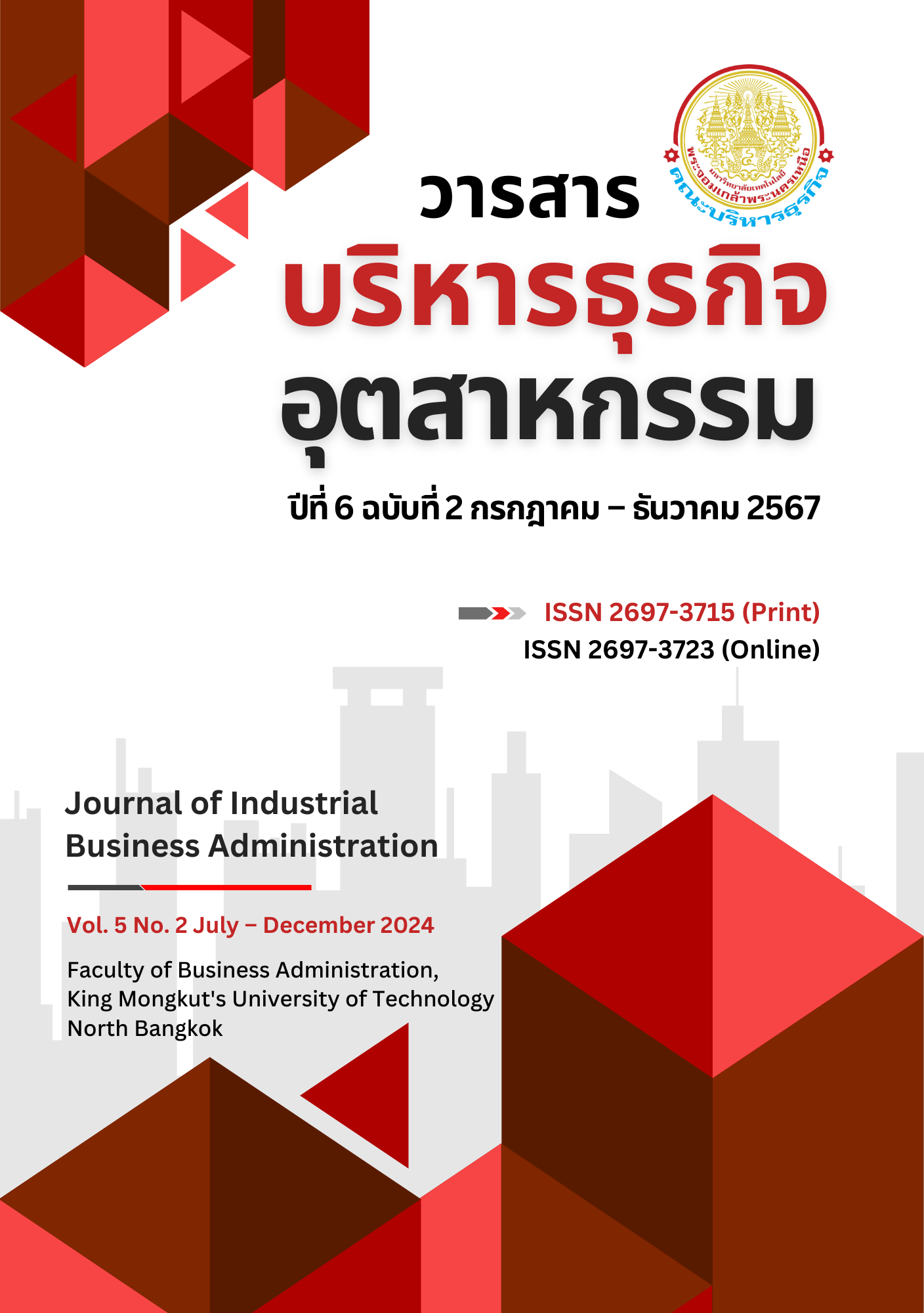Attitudes and Education Commitment of Students Participating in the Startup Thailand League Program
Keywords:
Educational Attitudes and Commitment, Startup Program Entrepreneurship, InnovationAbstract
This research aimed to 1) examine the attitudes and commitment levels of students participating in the Startup Thailand League program towards entrepreneurship, 2) assess their level of educational commitment, and 3) compare students' attitudes and educational commitment based on personal factors, including gender, education level, educational institution affiliation, institution location, and experience in program participation. The sample consisted of 181 students who participated in the Startup Thailand League program. The research instrument was a questionnaire. The instruments used were questionnaires on personal data, attitudes and commitment towards entrepreneurship, and comparison of differences in attitudes and commitment. Data were analyzed using descriptive statistics, t-test, and ANOVA. Data collection was conducted by the researcher. The findings revealed that 1) students had high levels of attitudes and commitment towards entrepreneurship has an average of 4.25, perceiving that participation in the program increased their chances of success in starting a business and planning to apply the knowledge gained in the future; 2) students demonstrated a high level of educational commitment has an average of 4.42, recognizing the importance of learning, being motivated to develop skills, and being ready to apply knowledge to create innovation; 3) female students exhibited significantly higher levels of commitment, dedication, and creativity compared to male students. Education level did not significantly affect differences in attitudes. Students who had participated in the program more than twice showed significantly higher positive attitudes than other groups, particularly in terms of enthusiasm, commitment, and self-development planning. The type and location of educational institutions did not significantly influence students' attitudes and commitment levels of students at the .05 level.
References
Ajzen, I. (1991). The theory of planned behavior. Organizational Behavior and Human Decision Processes, 50(2), 179-211. https://doi.org/10.1016/0749-5978(91)90020-T.
Bacigalupo, M., Kampylis, P., Punie, Y., & Van den Brande, G. (2016).EntreComp: The entrepreneurship competence framework. Publications Office of the European Union. https://doi.org/10.2791/593884.
Baistaman, J., Wan Mustapha, W. M., Abu Bakar, H., Mat Nawi, F. A., & Mamat, M. (2023). Entrepreneurial intention among university students: An application of the theory of planned behaviour theory. International Journal of Accounting, Finance and Business, 51(11), 182-191. https://ijafb.com/PDF/IJAFB-2023-51-11-04.pdf.
Brush, C. G., Greene, P. G., Balachandra, L., & Davis, A. E. (2018). The gender gap in venture capital-progress, problems, and perspectives. Venture Capital, 20(2), 115-136. https://doi.org/10.1080/13691066.2017.1349266.
Fayolle, A., & Gailly, B. (2015). The impact of entrepreneurship education on entrepreneurial attitudes and intention: Hysteresis and persistence. Journal of Small Business Management, 53(1), 75-93. https://doi.org/10.1111/jsbm.12065.
Kolb, D. A. (2014). Experiential learning: Experience as the source of learning and development. FT press.
Peng, Z., Lu, G., & Kang, H. (2012). Entrepreneurial intentions and its influencing factors: A survey of the university students in Xi'an China. Creative Education, 3(8), 95-100. http://dx.doi.org/10.4236/ce.2012.38B021.
Shirokova, G., Osiyevskyy, O., & Bogatyreva, K. (2016). Exploring the intention–behavior link in student entrepreneurship: Moderating effects of individual and environmental characteristics. European Management Journal, 34(4), 386-399. https://doi.org/10.1016/j.emj.2015.12.007.
Solesvik, M. Z. (2013). Entrepreneurial motivations and intentions: investigating the role of education major. Education+ Training, 55(3), 253-271. https://doi.org/10.1108/00400911311309314.
กรมส่งเสริมอุตสาหกรรม.(2563). โครงการ Startup Thailand League. https://www.industry.go.th/startup/.
สำนักงานส่งเสริมวิสาหกิจขนาดกลางและขนาดย่อม. (2564). ส่งเสริม "Thailand Startup Capital of ASEAN" ภายในปี 2569. https://www.sme.go.th/th/view.php?id=587.
Downloads
Published
How to Cite
Issue
Section
License
Copyright (c) 2024 Journal of Industrial Business Administration

This work is licensed under a Creative Commons Attribution-NonCommercial-NoDerivatives 4.0 International License.



